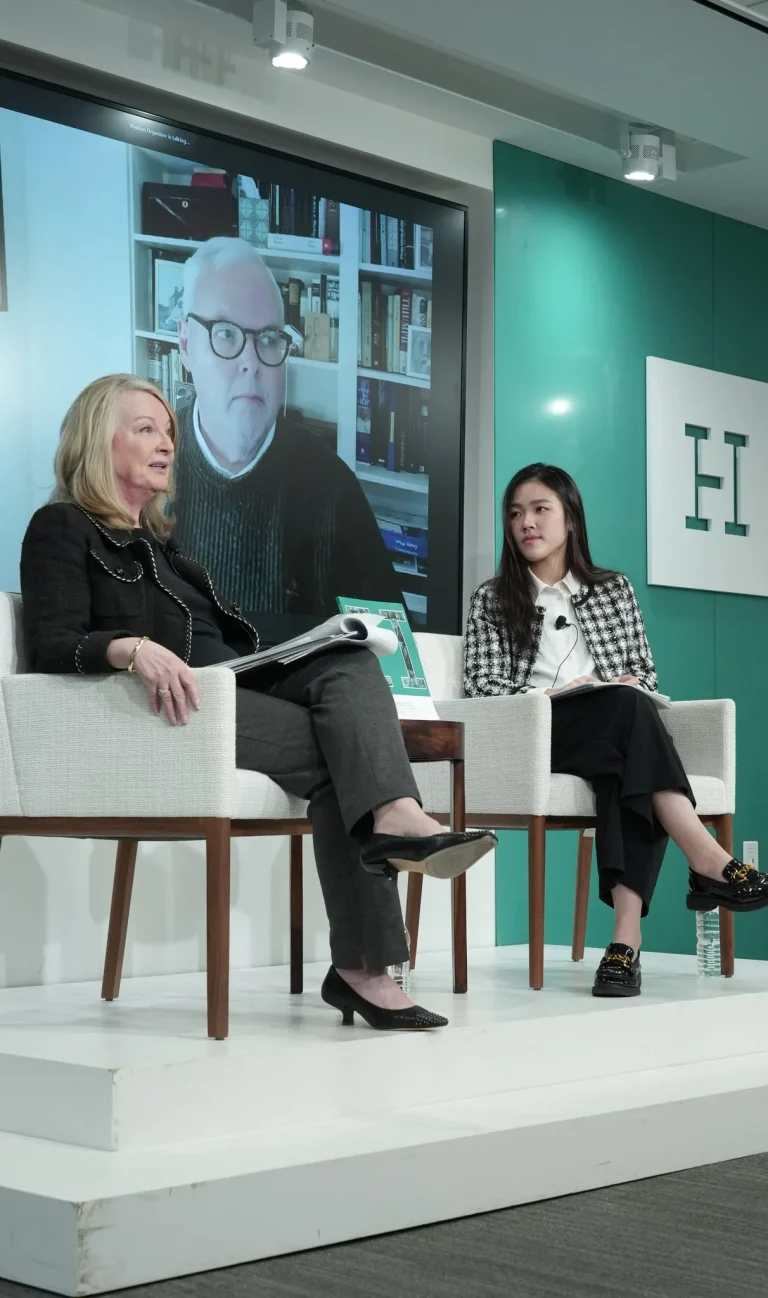Amid wars in Ukraine and Gaza, China’s activities in Hong Kong have not been in the global news spotlight as much in recent months. During a recent Hudson Institute Eventhowever, senior fellow and director of the Center for Religious Freedom Nina Shea discussed the situation of freedoms in Hong Kong with William McGurn of the Wall Street Journal And Frances Hui of Founding of the Committee for Freedom in Hong Kong. The conversation notably focused on Hong Kong businessman Jimmy Lai, imprisoned by the Chinese Communist Party (CCP). McGurn, a personal friend of Lai, described the businessman’s life and imprisonment; Hui, a Hong Kong-born activist, provided context on the CCP’s activities in Hong Kong.
Shea began the discussion with an overview of recent Chinese activities in Hong Kong, highlighting the erosion of freedoms of expression, assembly, association, religion and due process in Hong Kong through the national security law of 2020 of the CCP. Lai was charged and imprisoned under this law, and he now faces a court with a 100 percent conviction rate. Hui then described the law as “a very vaguely written law that applies to all of civil society”, leading to censorship and rights violations.
McGurn then described the history of his friendship with Lai, which began in the 1990s. McGurn, working in Hong Kong for the Far East Economic Review when they published an article about Lai’s chain of clothing stores marketed to the middle class, linked to Lai by a shared love of the Austrian economist Friedrich Hayek. McGurn and Lai’s wives also became close friends, and McGurn was involved in Lai’s conversion to Roman Catholicism in 1997. McGurn shamefully admitted that he initially doubted the strength of Lai’s faith due to pressure surrounding social networks, but noted that this strength has become clear over time. This became particularly evident in letters Lai wrote to him from prison, McGurn said, showing a sketch of Christ on the cross on the back of one of those letters.
In addition to commenting on Lai’s loyalty to his faith, McGurn commented on Lai’s remarkable loyalty to his country: “He could have gone anywhere and saved himself, but he just wouldn’t have done it. He always says: “Hong Kong made me rich, gave me everything I am.” How could I turn my back on him? Anyone who thought he might leave simply doesn’t know the man.”
Hui then described how the national security law affects religious freedom in Hong Kong, noting that many protesters in Hong Kong “included in their testimonies that their faith was what led them to take to the streets and participate to the social movement. She also highlighted the arrests of Lai, Catholic Cardinal Joseph Zen and a Protestant pastor sentenced to 13 months in prison.
Hui also described how the national security law affects education, noting that it requires schools to include pro-CCP values in their curricula, even in religion classes. This is linked to the CCP’s Sinicization policies, which “require religious groups to align with the party’s priorities and socialist values.” Hui noted that while Sinicization has historically been practiced primarily in China, it is now a larger force in Hong Kong as well, with a negative impact on religious freedom.
“It is important to remember that China is an atheist regime and the only reason they maintain religions is because they want to use them as a political tool,” Hui stressed.
McGurn warned that religious freedom in Hong Kong could continue to deteriorate if the CCP further implements policies already in place in China. Shea agrees, commenting that the CCP’s Patriotic Church of China has refused to recognize some elements of Roman Catholic authority in Hong Kong. Hui noted that the Vatican’s approach to Hong Kong and China has been complex, but that the Vatican has not openly expressed support for religious freedom in Hong Kong. McGurn called the Vatican’s approach to China “disastrous,” also expressing concern that a new Catholic bishop in China has not come out in support of Lai.
Shea pointed out that other religious groups in China have also been repressed, including Muslims and members of the Falun Gong religious movement. Hui noted that the latter has been very critical of the CCP. However, she also suggested that Catholics have been particularly singled out by the CCP for their social work.
Asked by Shea what the U.S. should do to support religious freedom in Hong Kong, McGurn praised the U.S.’s overall approach, but suggested it highlight Lai’s unjust imprisonment every time. as possible in negotiations with China. Responding to the same question, Hui pointed to Article 23 of the Chinese law, which would restrict the role of foreign groups in Hong Kong, including the Roman Catholic Church. She suggested that the United States should speak out against this likely imminent law and be prepared to resort to sanctions against China if necessary. Hui also suggested naming a street in Washington, D.C., after Jimmy Lai to raise awareness of his situation and the broader plight of those fighting for freedom in Hong Kong.
As this conversation at the Hudson Institute revealed, the state of religious freedom in China is dire and worsening in Hong Kong. It is imperative that the United States and the Church do what they can to combat the CCP’s unjust and oppressive interference in Hong Kong. And those of us with little political influence still have an obligation to believers affected by the CCP’s persecution: prayer.


